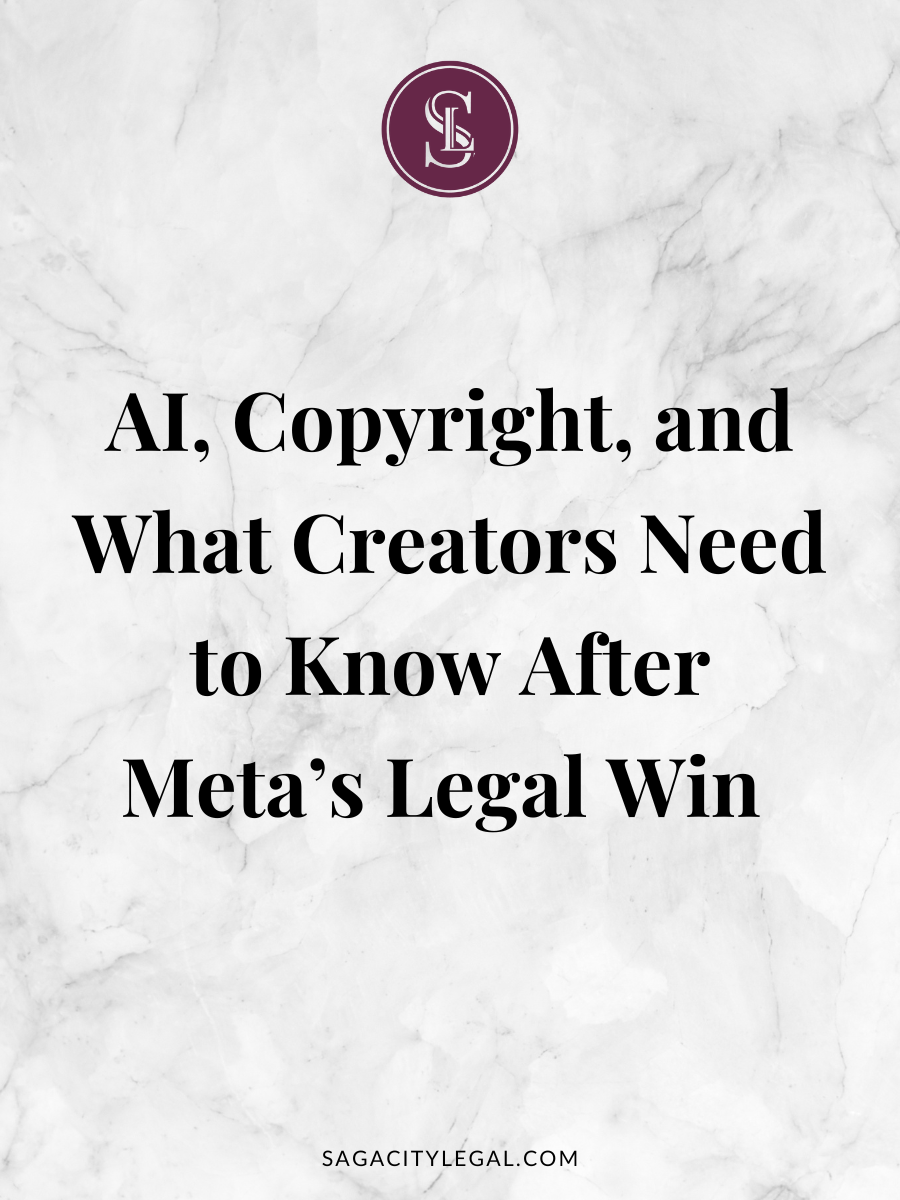Author: Naiya Chung, Sagacity Legal Intern
AI is now part of everyday tools and services. It often uses creative works like art, books, music, and code without creators’ knowledge. If you create original work, it is important to understand how AI might affect your rights as laws around AI are still evolving.
Why Meta Could Use the Books Without a License
On June 25, 2025, a judge ruled in favor of Meta in a case where authors said their books were used without permission to train Meta’s AI called LLaMA. The judge said Meta’s use was fair use because it helped the AI learn language rather than copying or selling the books. The authors wanted Meta to pay for a license, but the court said copyright law does not guarantee payment for every new use, especially when it changes how the work is used. The authors also failed to show there was a real market for licensing AI training.
Why the Authors Could Not Prove Their Books Were Harmed by Meta
The authors did not show that Meta’s use hurt the market for their books. Experts found that LLaMA could not reproduce more than fifty words from any of the authors’ works, even when asked to do so. The judge mentioned another idea for plaintiffs, that AI might flood the market with the same content and compete with original works but the authors did not use this argument or provide evidence. Due to this, the court ruled that the authors did not have enough proof to win.
What Creators Should Learn: Show Real Harm, Not Just Unauthorized Use
This case shows that proving someone used your work without permission is not enough. You must show clear evidence that your market or earnings are harmed. Creators should prepare strong proof like sales data or expert reports when bringing copyright claims. As AI grows the law will keep changing so staying informed and ready with solid evidence is key.
Final Thoughts: Protecting Your Work as AI Grows
AI often uses creative content without asking. This case shows that just claiming unauthorized use will not win in court. Creators need to build strong cases with clear proof of financial harm. This ruling only applies to these authors and facts. Others should learn from it and be prepared to protect their work as AI and copyright law evolve.
Want to chat more about protecting your creative works from AI use? Hop on my calendar at meetwithrandi.com or using this contact form.


leave a comment on this post.